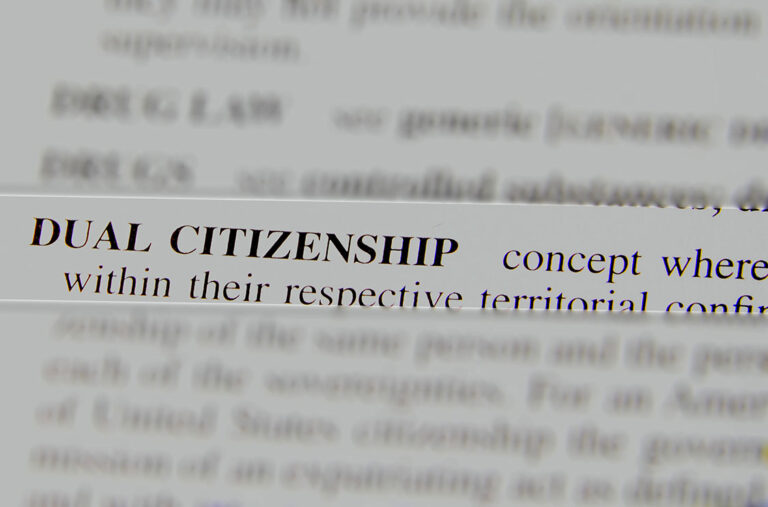In just the past handful of years, Croatia has really burst onto the international scene. Many people are surprised to learn how affordable, beautiful, and warm the country can be.
But if you are making the leap to retire in this Mediterranean country, you’ll probably have a lot of questions cropping up.
What visa do you need? How affordable is the healthcare? How is the culture?
We have answers to all this and more.
Croatia Visa Options for Retirees
EU/EEA citizens, including Swiss nationals, find retiring in Croatia relatively straightforward. They don’t need a visa is required. They just need to register their stay within three months of arriving.
However non-EU citizens have a more difficult process that involves getting a visa. But while Croatia doesn’t offer a specific retirement visa, you still have some pathways:
- Temporary Residence via Real Estate Ownership: Buying residential property in Croatia allows for a temporary stay—but it is limited to six months per year. There is no minimum investment requirement, but you must reside in the property. The downside is that you must leave Croatia for six months after the permit expires, making continuous residency challenging.
- Temporary Residence via Long-Term Rental: Retirees can also secure temporary residence by renting property for up to one year. A notarized rental agreement and advance rent payment are required. Similar to the pathway outlined above, there is a mandatory gap period after expiration, so again, no year-round stays.
- Digital Nomad Visa: Introduced in 2021, this visa suits retirees engaging in part-time remote work or freelancing. Requirements include proof of remote income, health insurance, and sufficient finances (right now around €2,870 monthly). It’s valid for one year without extension, requiring a six-month gap before reapplication.
- Volunteer Visa: Retirees passionate about contributing to social causes can volunteer with registered Croatian non-profits. This allows residency for up to one year and possibly a second-year renewal, although it does not lead to permanent residency. It also really bends the idea of “retirement.”
- Starting a Business or Investment: This route involves considerable financial commitments, including employing local staff and investing significant capital, making it less appealing for pure retirement purposes.
- Family Reunification or Ancestry: Retirees with Croatian ancestry or family connections can pursue permanent residency or citizenship, offering a simpler, long-term residency solution.
To learn more about all the visas available, check out this resource to Croatian visas.
Cost of Living in Croatia for Retirees
Croatia offers an attractive cost of living, significantly lower than North America and much of Western Europe, making it feasible for retirees to enjoy a comfortable lifestyle.
- Healthcare costs are notably affordable and of good quality. The public healthcare system (HZZO) provides comprehensive coverage for around €80–€100 monthly, plus a one-time initial enrollment fee (around €1,000). Many Croatian seniors opt for supplementary insurance—given the low costs.
Private healthcare and insurance are also available, with costs significantly lower than Western averages, making medical expenses predictable and manageable.
- Housing costs vary significantly depending on the region. Coastal cities and popular towns command higher rental prices (€400–€700 monthly for a one-bedroom apartment), while smaller inland towns offer more affordable options (€250–€300 monthly). Purchasing property is reasonably priced, especially outside major tourist hotspots.
- Daily expenses, such as groceries and dining out, are modest. Fresh local produce is affordable, with monthly grocery bills around €250–€300 for a couple. Dining out is inexpensive, with full meals at local restaurants typically under €15 and three-course dinners for two averaging €40–€50.
Overall, a comfortable retirement for a couple in Croatia typically requires €1,500–€2,500 a month. That includes rent, utilities, healthcare, groceries, and entertainment.
You can get a more in-depth breakdown here.
Expat Retiree Community in Croatia
Croatia’s expat community, though smaller than some Mediterranean countries, is steadily growing, particularly in regions like Istria and Dalmatia. These areas have active, vibrant communities where retirees easily integrate through social clubs. You can also take advantage of the many community activities and informal meetups going on all the time.
- Istria, famous for its scenic landscapes, vineyards, and historic buildings, hosts many European expats. Towns like Rovinj and Pula have international communities with activities such as wine tastings, cycling groups, and cultural outings.
- Dalmatia, particularly Split and Zadar, gives you an overall more urban experience in many places, but there are still plenty of picturesque coastal settings.
Croatia’s welcoming atmosphere and the high English proficiency among locals means that integrating into daily life here shouldn’t be too difficult. Although forming deep connections might require overcoming language barriers, basic Croatian knowledge significantly enhances interactions and friendships.
Croatian Climate Considerations
While not a large country, Croatia still gives you some options vis-a-vis climate. And what you’ll choose ultimately comes down to preference:
- The Adriatic coast and islands enjoy a classic Mediterranean climate—hot, dry summers and mild winters, with plenty of sunshine all year long. Summers typically see temperatures around 30°C, ideal for outdoor living. Winters are mild (5–15°C), with rain rather than snow.
- Inland regions, including Zagreb, have a continental climate with four distinct seasons: warm summers and cold winters with regular snowfall.
- Mountain regions, though less popular for retirement, have alpine climates with snowy winters and cooler summers.
Most retirees favor coastal regions due to their year-round outdoor opportunities and milder winters. But to each their own!
Spending Your Golden Years in Croatia
Retiring in Croatia presents so many advantages and benefits, but it can also be a challenge. With no clear visa status to keep you in the country long term, it often requires some working years to get yourself established in the country.
Once you do that, you could naturalize and spend your retirement as a full citizen of Croatia. Learn more about how to become a Croatian citizen here.



